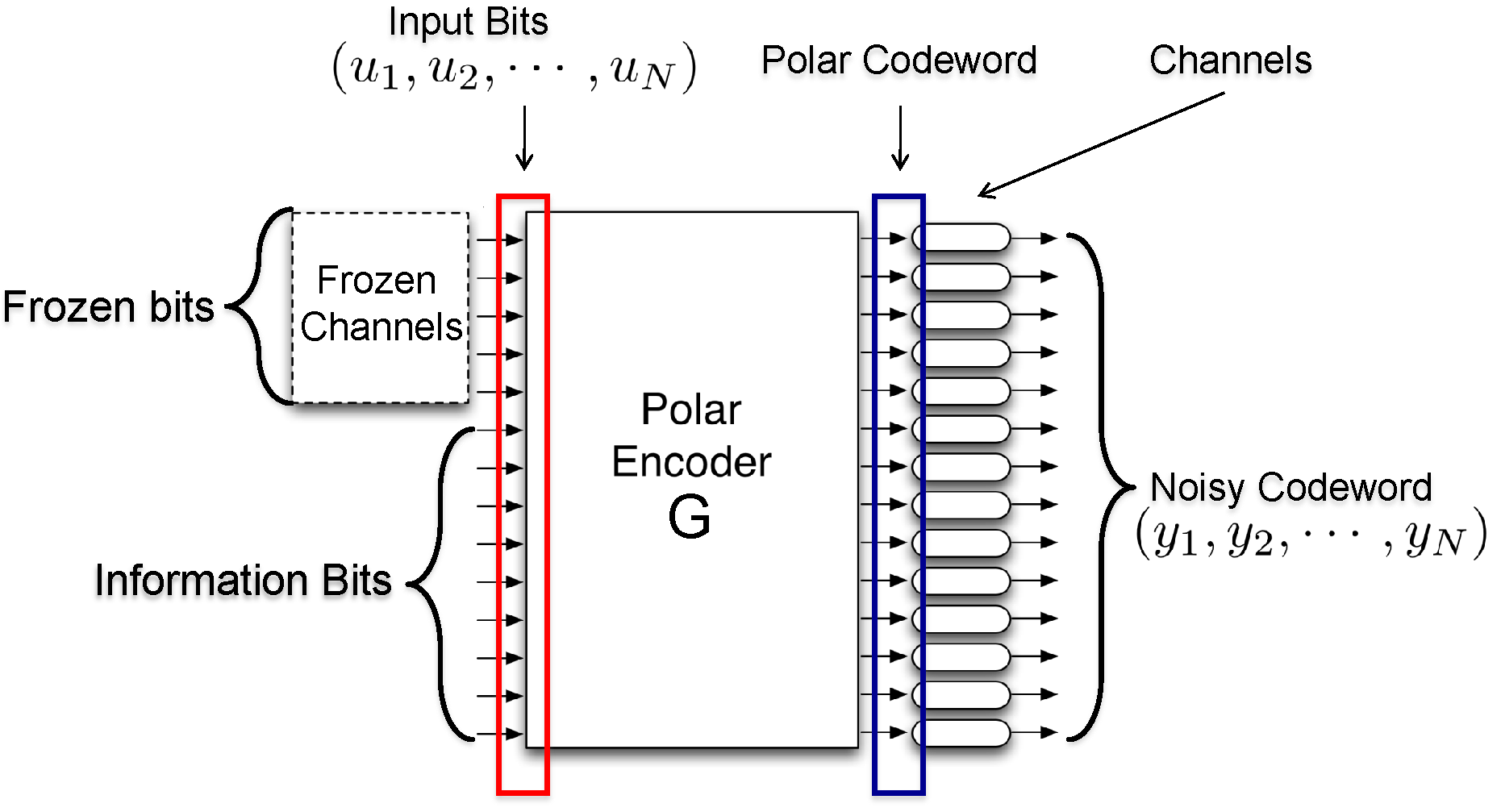Polar codes
Polar codes are the latest breakthrough in coding theory, as they are the first capacity achieving channel codes with low-complexity encoding and decoding algorithms. Recent research have shown the possibility of applying polar codes and the polarization phenomenon in various signal processing and communication problems. In addition, young polar codes with another mature LDPCs have been selected as part of 5G standards. Since the polar codes were invented less than 10 years, there is still a lot more work to be done on Polar codes to bring them to their full potential on performance and complexity.

Project Description
Although the above-mentioned aspects of polar codes are very attractive, the complexity issue never can be ignored. Successive decoding (SC) can perform with low complexity O(n log n), but requires a larger block length n, while SC list decoding perform well with higher complexity O(L n log n). Most of researchers focus on providing better error correction performance via using all possible computational resources, such as high frequency multi-cores CPU and GPU. However, for some practical application, it still need to correct errors with limited hardware resources. Therefore, in this project, we aim to develop a polar codes decoding algorithm to achieve low complexity and high throughput, but also perform well. This involves the following research activities,
1) Efficient implementation of advancing state-of-the-art in polar codes
2) Investigation of optimal LLRs and path metrics irregular quantization to reduce the decoding computational complexity
3) Evaluation of the optimized polar encoding and decoding algorithms
Recent publications from our group show the advantages of polar codes and the Matlab codes is available for the student. However, for investigation the potential of hardware implementation, other programming environments are also expected to be used, such as C and VHDL.
Environment
You will be working in the ICT Lab of the Signal Processing Systems (SPS) Group, TU/e Eindhoven. The ICT Lab collaborates with NXP, Eindhoven.
Your Background
Your basic signal processing background should be enhanced with knowledge about error correcting codes and information theory. Course 5LSF0, “Applications of Information Theory�, Q4, provides this extra knowledge.
Contact

Interested applicants may contact:
Dr. Bin Chen (b.c.chen@tue.nl) or Prof. Frans Willems (f.m.j.willems@tue.nl).